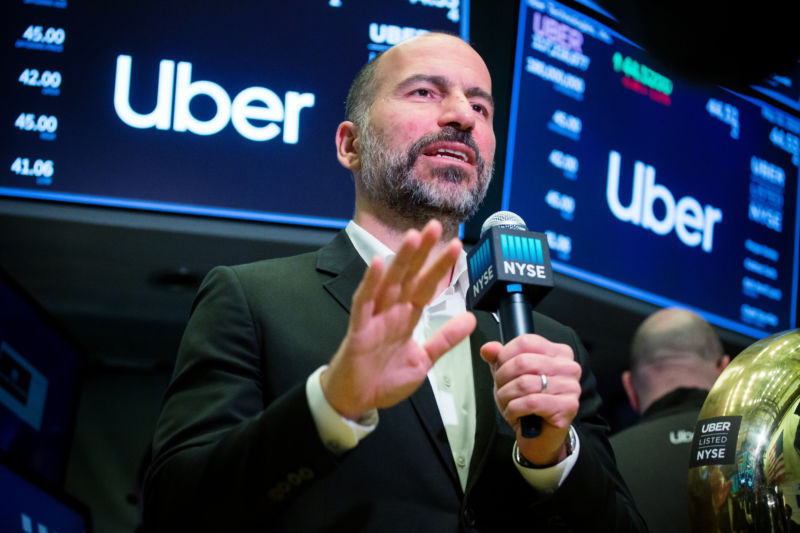
Uber CEO Dara Khosrowshahi is warning that a landmark California ruling on the employment status of its drivers could force the company to shut down its service in California until November.
"We think we comply by the laws," Khosrowshahi said on MSNBC. "But if the judge and the court finds that we're not, and they don't give us a stay to get to November, then we'll have to essentially shut down Uber until November when the voters decide."
Last year, California's legislature passed legislation designed to force Uber and other "gig economy" companies to treat their drivers as employees rather than independent contractors. That could entitle the workers to minimum wage protections, reimbursement for expenses, unemployment insurance, and other benefits.
A state court confirmed on Monday that the new law applies to Uber and gave the company just 10 days to comply. Uber is hoping that an appeals court will block enforcement of the order while the case proceeds.
After the law passed last year, Uber, Lyft, and DoorDash spent more than $100 million gathering signatures for a voter initiative that would overturn the law. It is slated to appear on the ballot in November.
A big change
Labor rights advocates argue that Uber drivers deserve the same benefits and protections that other workers enjoy. Uber has argued that many of its drivers value the flexibility of its current model—flexibility that might not be possible in a more conventional employment relationship.
Under the current model, Uber drivers decide when, where, and how much to work. This makes it a convenient way for people with complex or unpredictable schedules to earn money on the side. If Uber were required to treat its employees as employees, it would likely have to exert more control over its workers' routes and schedules—refusing to let them work if there wasn't enough demand to earn minimum wage.
The November ballot initiative would strip drivers of employee status but offer them some of the protections and benefits that come with employee classification. If the law passes, Uber drivers would be guaranteed to earn 120 percent of California's minimum wage while they are completing trips. They would also be reimbursed for delivery expenses at a rate of 30 cents per mile, and workers that logged enough hours behind the wheel could get reimbursed for health insurance premiums.
However, under Uber's proposal, drivers' earnings would not be guaranteed for time when they are logged in to an app waiting for an assignment. As a result, drivers could still wind up making less than minimum wage for the total time they are logged in to the app.
“You’re playing a game of chicken”
Khosrowshahi argues that making drivers employees would require such extensive changes to Uber's business that it would have to shut down the service for more than two months to retool. He also said the service could change dramatically as a result—with fewer drivers, higher prices, and a smaller coverage map focused on urban centers.
MSNBC's Stephanie Ruhle, however, questioned whether the transition to an employee-based model would truly require a months-long shutdown. "That almost sounds like you're playing a game of chicken," Ruhle said.
Threatening to pull out of a market was a common bargaining tactic for Uber in its early years. In 2016, Uber and Lyft exited the Austin market for several months after Austin passed regulations requiring that drivers undergo fingerprinting and a criminal background check. The company returned to Austin the next year after the state legislature passed legislation preempting the rule.
While shutting down in California for almost three months would be painful for Uber, it could focus voter attention on the issue and help to boost public support for Uber's ballot initiative. Or it could have the opposite impact if voters feel that Uber is trying to hold the state hostage to get more favorable regulations.
reader comments
268